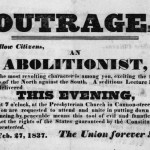My sister (thanks RH) pointed me to an interview of Peter Sandman on NPR. Peter says his gig is “Risk Communications.” Which, to hear him tell it, is the art of managing outrage: turning it up, turning it down, and riding the wave – as appropriate. He has a spectacularly rich and interesting website. Many years ago he wrote a book “Responding to Community Outrage: Strategies for Effective Risk Communication” which you can pick up on Amazon for only two hundred and fifty bucks; or you can now get it for free on his site(pdf).
 When explaining what he does Peter most often begins with a curious fact. People’s outrage about a given hazard is largely independent of the actual danger, only a 4% correlation. I like to reframe a statistic like that. It’s not about “people,” it’s about you. Unless you’re better than most of us then you are aroused about the wrong things, but yeah – I’m sure you are better.
When explaining what he does Peter most often begins with a curious fact. People’s outrage about a given hazard is largely independent of the actual danger, only a 4% correlation. I like to reframe a statistic like that. It’s not about “people,” it’s about you. Unless you’re better than most of us then you are aroused about the wrong things, but yeah – I’m sure you are better.
He calls this outrage, not arousal; and he has a list (pdf) of how to fuel the flames:
- Controlled by Individual/Others
- Source: Trustworthy/not
- Process: Responsive/not
- Voluntary/Coerced
- Fair/Not
- Not/Morally-salient
- Natural/Industrial
- Familiar/Exotic
- Not/Memorable
- Not/Dreaded
- Knowable/not
You can feed or starve these fires. Turn it down: “Outrage Management.” Turn it up “Precaution Advocacy.”
He argues, interestingly, that getting people to take an issue seriously usually requires lowering the level of outrage. Lots of people find that counter intuitive. I agree that managing the arousal is usually the first step in getting a group to solve a problem.
There is an alternate framing of that: conservation of outrage. If you accept that people have a natural level of outrage, i.e. it’s part of their personality, then you can begin to see the problem in terms of transferring outrage from one worry account to another.
Recently, This American Life did a piece on climate change. In one segment they visited Colorado. The state was on fire. The weather was bizarre The crops were dying. But nobody would even say the word climate change. At one point the reporter utters the unspeakable and the farmer she is talking to goes ballistic. But not really about climate change, rather his outrage is about environmentalists, leftists, etc. Dan Savage mentioned this episode as reminding him how gay men would deny AIDS in the early years. That in turn reminds me of the vigorous emotional lumber that resists addressing other issues – austerity, income distribution, health care, public transit, etc. etc. Do people resist these because their outrage is elsewhere?
Experts in a domain to often work hard and carefully to read a conclusions about what needs to be done. Usually they need to convince some other group to act. Whenever they, or you, start to engage with that other group the exact same thing happens. You say “X! and they say Z!;” and you reaction is that “WTF? X has nothing to do with Z; … well very very little to do with it.”
There are plenty of words for alll this: arousal, outrage, motivation, “what are those idiots thinking!”
The ideas in Peter’s work are scale free; they are useful from problems big and small.
When “Responding to Community Outrage” went out of print in 2012, I posted it on my website. You can read it or download it for free at http://www.psandman.com/media/RespondingtoCommunityOutrage.pdf.
Hey Ben – Thanks for cluing me into Peter Sandman’s book.
My compiled knowledge has always told me to be “patient” when engaging on a sensitive topic. But that’s ‘way too squishy to be useful. Plus it does not confer enough control: I have often found the easiest way to be patient is not to communicate at all. That’s a fail, especially when there’s something to be learned from an uncomfortable exchange.
So I really appreciate how Dr Sandman has pasted specific and helpful labels on every dial in that blank scary control panel.
Of course, shoegazer and upright citizen that I am, I have little personal need of damage control. But it’s fun to try these techniques on Facebook. I recently turned a potentially nasty discussion about gun rights into a comity-laden exchange.
Another satisfied customer, that’s me.